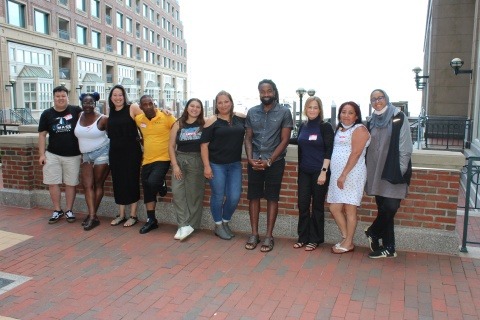By Shane Rogers, Communications and Network Weaving Strategist
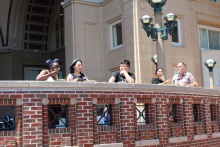
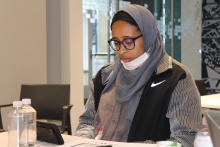
The Community-Led Climate Resilience in Boston Cohort is made up of 12 members from seven groups around Greater Boston. The groups were selected after an extensive community research process, including interviews and referrals from partners and folks living in the community, to identify groups and organizers working on the ground in their communities and at the intersection of Environmental Justice. The dozen organizers identified were then asked to join the Grassroots Fund and Barr Foundation in a new venture where they were to be tasked with working together to collectively decide how to distribute $180,000 in funding amongst themselves and the work they hoped to accomplish over the next year, no strings attached. All the groups were also guaranteed up to $5,000 in grants for their time.
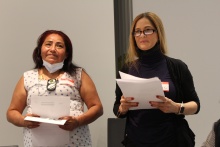
For many of the organizers this was the first time meeting each other in person, although the handful of virtual meetings before gave them some comfort and familiarity. As they settled in for the day after an all-too-brief hour of mingling, laughs, and “oh you know so-and-so!” the mood turned to the reason for their gathering. All seven groups had prepared a presentation about their community work along with a monetary ask to fund it. Not surprisingly, the hopes and dreams outlined were not only inspiring, but also familiar as the organizers saw more concretely the connections between the work they all hoped to accomplish in their own communities.
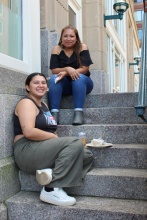
As the day-long meeting began to come to a close, the organizers finished up their presentations and began a conversation about final decisions regarding funding. While expressing discomfort at times, as most of the organizers had not been part of a situation where they were given the freedom to make funding decisions, the discussion encompassed many of the difficult intricacies and nuances that are tied up with funding, ultimately leading to a final decision all organizers felt comfortable with.
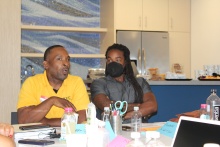
Since the in-person meeting, the Community-Led Climate Resilience in Boston Cohort has continued to meet monthly, virtually to keep in touch, share updates, and coordinate work that aligns among their groups. As this was the first year of the shared gifting circle, the organizers also helped to evaluate the success and challenges of the cohort in order to adapt next year’s strategy to continue to meet the needs of the community.
“We are so inspired by the work taking place in Boston among these community organizers and are pleased that this model was able to lower barriers for them to access funding for their important community work,” says Sarah Huang, co-director of the Grassroots Fund. “As we continue with this process, we are in a constant state of learning and evaluating to improve and grow how funders are able to meet the needs of the grassroots wherever they are.”
The organizations participating in the Community-Led Climate Resilience in Boston Cohort are:
- Dorchester Not 4 Sale
- Neighbors United for a Better East Boston (NUBE)
- Brockton Interfaith Community
- Revere Youth in Action
- Lynn United for Change
- People Affecting Community Change (PACC)
- New England United 4 Justice (NEU4J)
